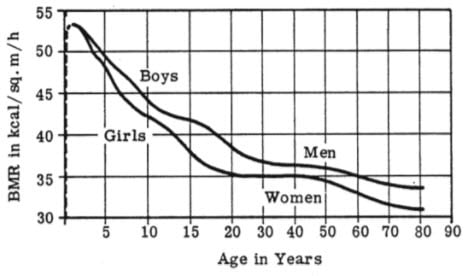
[cmamad id=”14126″ align=”center” tabid=”display-desktop” mobid=”display-desktop” stg=””]
A few sessions of playing this video game trains your brain and keeps you sharp. The risk of dementia and Alzheimer’s drops by 40%. Here it is…
——-Important Message——
My penis unit was shrinking as I got older. Here’s how I fixed it…
My balls were smaller and less heavy…and I felt like what I had never got hard anymore, even in the morning.
My doctor said, “What do you expect? You’re getting older.” and didn’t have any ideas for me.
But something about that didn’t seem right.
I’m not THAT old. That can’t explain why I don’t have the sexual stamina and the hard erections I used to have?
It turned out that my problem was PENILE FIBROSIS…

Here is the penile fibrosis solution to sexual dysfunction that your doctor doesn’t know about
————-
Video game gives you “Navy Seal” mental sharpness
As we age, cognitive function naturally declines.
But an increasing number of people are developing dementias such as Alzheimer’s disease and Parkinson’s disease.
A new study shows that the old adage “use it or lose it” might be true in the case of these dementias.

This study was carried out at the University of Indiana and published in the journal Alzheimer’s & Dementia – Translational Research & Clinical Interventions.
Almost 3,000 healthy older adults were recruited into a trial called Advanced Cognitive Training in Vital Elderly (ACTIVE).
[cmamad id=”14127″ align=”center” tabid=”display-desktop” mobid=”display-desktop” stg=””]
This was a random trial. The researchers assigned some participants to a computerized brain training treatment. And the control subjects had no treatment at all.
The trial used interactive touchscreen computer games to stimulate the minds of the elderly participants.
Three types of interactive games were tested – one proved to be successful.
The successful brain-training game involved objects appearing in the center of the screen which the participants were then asked to identify.
In another part of this game, participants had to identify the position of objects that appeared in the periphery of the screen.
Depending on how well the participants performed, the training system was then made more or less difficult.
Each training session was about an hour long.
An initial phase with up to ten sessions was completed in the first six weeks.
And then some of the people who had completed the initial sessions received booster training years later.
The participants were initially assessed on memory, verbal learning, behavioral memory, and vocabulary.
Further assessments of these measures were taken at later points to see how people had changed.
Many people dropped out of the trial. And you would expect this from a 10-year-long study of an elderly group.
Of the 1,220 people who completed the trial, 260 had developed dementia by the 10-year follow-up point.
The study used multiple methods to examine the onset of dementia and general cognitive capacity.
“Outcome assessments were taken immediately after intervention and at intervals over 10 years. Dementia was defined using a combination of interview and performance-based methods.”
The speed training program resulted in a decrease in dementia in the group that received treatment intervention.
“Speed training resulted in reduced risk of dementia compared to control, but memory and reasoning training did not.”
Speed training resulted in an almost 1/3 decrease in dementia.
“The hazard of dementia was 29% lower for speed training than control.”
The risk of dementia decreased even further in people who had taken the extra booster sessions.
“Each additional speed training session was associated with a 10% lower hazard for dementia.”
Extra training provided more benefits across all study groups.
“The effect of the number of speed training sessions remained significant after controlling for age, sex, race, depressive symptoms, diabetes, and congestive heart failure.”
The risk of dementia was decreased by around 40% upon completion of five or more booster training sessions.
“Among participants who completed 5 or more booster training sessions, indicators of dementia were evident in 6% of participants from the speed arm and 10% among those completing the memory and reasoning booster training arms, respectively.”
This is a very exciting study.
It identifies one specific type of computerized brain training that lowers the risk of dementia in a dose-dependent manner.
There were two other types of brain training exercises used in this study, but neither showed any success in preventing dementia.
“Cognitive training focused on memory or reasoning was not associated with decreased risk of dementia.”
Scientists who oversaw the study believe that speed training is effective because of the way in which it engages the brain:
“Speed training is distinct from memory and reasoning training as a perceptual/cognitive technique aimed at enhancing basic information processing efficiency with implicit learning mechanisms.”
Hopefully, this study can lead to brain training programs on household devices that can reduce the increasing burden of dementia in our society.
You should see a healthcare professional about any cognitive or behavioral issues.
—–Important Message—–
Forget about Alzheimer’s and dementia – this metabolic fix gives you the sharpness of a young man and erections as hard as a steel rod.
Every day, I get letters from health-seekers like you…
They feed TIRED.
And they don’t just feel sleepy-tired. They don’t just feel played-five-sets-of-tennis tired.
They feel bone tired. Dog tired. Tired all the time.
And do you know what I tell them?
“You’re tired because your metabolism has slowed down.”
This chart shows how men’s’ metabolisms slow down as they get older. It shows how metabolism (BMR or Basal Metabolic Rate) falls as we age.
This is why men over 50 are feeling so tired. And they start forgetting things and spiral down into old age.

But there’s a solution. It’s simple. It’s delicious. And I promise it will work.
This simple metabolic morning shake not only gets you off to a rip-roaring start – it provides enough energy to keep you humming for an entire day.
And unlike “crash and burn” energy drinks, it’s perfectly safe.
————


Leave a Reply